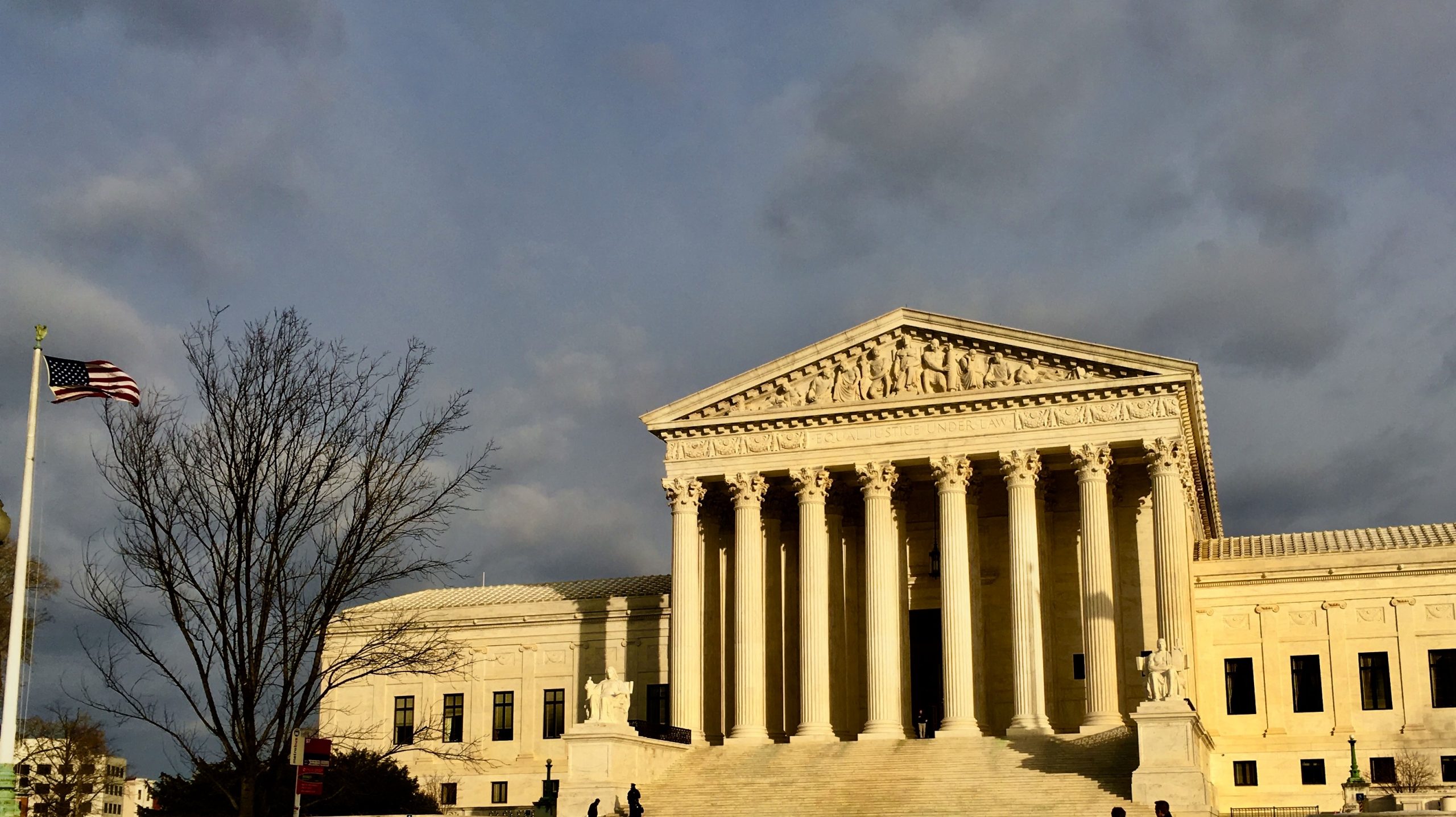OPINION ANALYSIS
Unanimous court issues limited ruling on judgment bar in Federal Tort Claims Act

on Feb 25, 2021 at 11:29 pm

A unanimous Supreme Court on Thursday issued a limited ruling on the Federal Tort Claims Act’s judgment bar.
The case, Brownback v. King, began in 2014, when officers working with an FBI task force in Grand Rapids, Michigan, tackled, choked and punched college student James King in the head after mistaking him for a fugitive. King sued the United States under the FTCA, which allows individuals to bring state law tort claims against the federal government. King also brought claims against the officers under Bivens v. Six Unknown Named Agents of Federal Bureau of Narcotics, which allows individuals to sue federal officials for violating their constitutional rights.
The district court dismissed King’s FTCA claims. The court held that because Michigan law provides immunity for officials who do not act with malice, a state tort claim was not viable. (In a footnote, the Supreme Court noticeably did not express a view on whether state immunities would apply in this context). The district court therefore concluded that it lacked jurisdiction over the FTCA claims. It dismissed the Bivens claims on qualified-immunity grounds.
On appeal, King wanted to pursue only the Bivens claims. The U.S. Court of Appeals for the 6th Circuit had to decide whether the appeal could go forward in light of the FTCA judgment bar. The judgment bar statute provides that a “judgment” in an FTCA action “shall constitute a complete bar to any action by the claimant, by reason of the same subject matter, against the employee of the government whose act or omission gave rise to the claim.” The 6th Circuit held that the district court’s dismissal in this case did not trigger the judgment bar, reasoning that a dismissal for lack of subject-matter jurisdiction is not a ruling on the merits, and therefore not a final judgment.
The Supreme Court unanimously reversed. In an opinion by Justice Clarence Thomas, the court noted that the parties agreed that there “must have been a final judgment on the merits to trigger” the FTCA judgment bar. Thus, the court had to decide whether the district court’s dismissal in this case was in fact a final judgment.
The court held that it was. Thomas explained that “the judgment bar was drafted against the backdrop doctrine of res judicata,” and to trigger the doctrine of res judicata, a judgment must be “on the merits.” As it was understood back when Congress passed the FTCA, “a judgment is ‘on the merits’ if the underlying decision ‘actually passes directly on the substance of a particular claim before the court.’” Thomas reasoned that the district court’s “summary judgment ruling hinged on a quintessential merits decision: whether the undisputed facts established all the elements of King’s FTCA claims.”
Thomas noted the wrinkle that, in the FTCA context, “pleading a claim and pleading jurisdiction entirely overlap.” But he ultimately found this unimportant, concluding that “a ruling that the court lacks subject-matter jurisdiction may simultaneously be a judgment on the merits that triggers the judgment bar.”
Importantly, the court did not decide whether the judgment bar actually precludes King from pursuing his Bivens claims. Despite this question consuming much of the briefing, the court punted in a footnote, noting that the 6th Circuit did not address the arguments, and that the Supreme Court is “a court of review, not of first view.” Thus, the court left it to the 6th Circuit to decide how the judgment bar would apply in this case.
Justice Sonia Sotomayor wrote a concurrence strongly suggesting that King’s Bivens claims aren’t barred. In Sotomayor’s view, King’s argument that the judgment bar does not apply to different claims in the same lawsuit was likely the better argument when considering the text and purpose of the judgment bar. On remand, this issue warrants close attention, Sotomayor admonished, because while “lower courts have uncritically held that the FTCA’s judgment bar applies to claims brought in the same action, there are reasons to question that conclusion.”
King’s case will live to see another day as he seeks to hold the officers who assaulted him accountable.


